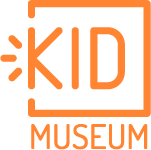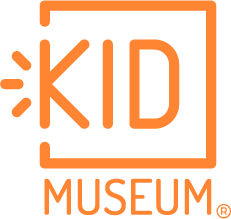
We witnessed the immense talent and passion of the next generation when Amanda Gorman, the Youth Poet Laureate, delivered her message of optimism, hope, and strength on Inauguration Day. Ms. Gorman’s personal story resonates strongly with all of us at KID Museum, highlighting the power of creativity, perseverance, and compassion, and setting the stage for the generation that follows her:
It’s because being American is more than a pride we inherit,
it’s the past we step into
and how we repair it.
When the next generation steps in, they will need to be ready. And they will need our help. Too many kids have been devastated by Covid-related learning loss, with a ripple effect on schools, the workforce, and our community that could be felt for years to come. If we are to empower the next generation to invent the future, we need to act now to leapfrog learning, and set them up for success.
The pandemic has amplified long-standing inequities. Why restore a system that was already failing so many? This is the moment to reimagine what learning can be, to unleash the talents and capabilities of our kids. Whether they become the next Youth Poet Laureate, a science teacher, or inventor, every one of them has the capacity to take on life’s challenges with creativity and courage. Being creative, persistent, and compassionate aren’t things you are just “born with” — they are skills that can be taught. We’ve seen proof that with the right tools, kids flourish.
Jo Belyea-Doerrman, a teacher with three classes participating in KID Museum’s Invent the Future Challenge program this year, tells the story of a seventh grade girl who is completely silent in all of her classes. But during their virtual workshops with KID Museum, this same girl lights up and doesn’t stop talking. In this program, she’s found her spark. The Invent the Future Challenge combines engineering, design, and coding with social emotional capabilities like teamwork, perspective taking, and initiative. Rather than sitting at their screens and being talked to, students are using their hands and minds to design their own solutions to real-world problems. “In other classes, they are passive participants,” Jo says. “Here, they are actively engaged.” She goes on to explain, “School is traditionally about linear thinking. This program teaches them to be creative thinkers.”
The Invent the Future Challenge has consistently yielded real results: multi-year assessments have shown students making big gains in critical thinking, perseverance, and interest in STEM.* These are the hands-on, maker learning experiences that will accelerate learning for all of our kids, and especially those who’ve been left behind for so long.
This year, as the pandemic dulls learning experiences everywhere, we’ve stepped up our game, converting the Invent the Future program to virtual or hybrid settings, and deepening our work. In addition to offering multi-session skill-building workshops and professional development, we are piloting our own maker-based curriculum for teachers to deliver in classrooms. We’ve partnered with eight MCPS schools to actively test and refine this curriculum with our cohort of “Champion” teachers — one of whom is Jo Belyea-Doerrman.
Two years ago, at our Invent the Future showcase event, we invited Dr. Shanika Hope of Amazon Future Engineer (and now one of our newest Board Members) to give our keynote address. Dr. Hope was blown away, by not only the impressive student innovations, but by the energy and agency the experience inspired in the kids she met. Addressing a packed audience of students, parents, and educators, she said, “If you are the next generation of inventors, I’m feeling hopeful about the future.”
I am too. Amanda Gorman embodies the dynamic generation to come. She was lucky enough have the opportunity to discover what makes her shine — to the benefit of us all. Like Ms. Gorman, we know that all kids have the potential to do great things, if given the tools to do so. It’s on us to prepare our kids the best we can to “repair the past they step into,” and the future they must invent.
*Assessments by the PEAR Institute at Harvard Medical School and McLean Hospital showed 82% increase in critical thinking skills; 79% increased interest in STEM; 70% increase in perseverance.

